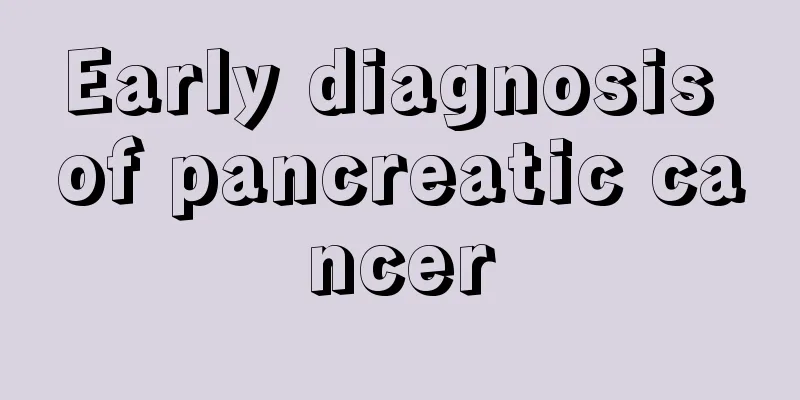Is my grandfather's rectal cancer hereditary?

|
Genetic factors: Except for patients with colorectal cancer caused by familial polyposis or malignant transformation of ulcerative colitis, about 5% to 10% of other colorectal cancer patients have a clear family history of tumors, collectively referred to as hereditary non-familial polyposis colorectal cancer, also known as Lynch syndrome. The specific manifestations are: (1) Three or more family members have colorectal cancer, two or more of whom are from the same generation; (2) At least two generations of the same family have been diagnosed with the disease; (3) At least one of them was diagnosed with colorectal cancer before the age of 50. It is understood that intestinal cancer usually refers to colorectal cancer, because the probability of small intestine cancer is extremely low. Colorectal cancer can be divided into two parts: colon cancer and rectal cancer. Doctors said that from the cases of colorectal cancer, obesity is related to the incidence of colorectal cancer. Therefore, the cause of colorectal cancer has a lot to do with people's eating habits. With the improvement of living standards, Chinese people who originally ate more vegetables and grains now start to eat a lot of meat and dairy products. High calories, excessive intake of animal fat and cholesterol, and obvious lack of fiber and vitamins all increase the incidence of colorectal cancer. Experts point out that the more animal fat you eat, the greater the risk of dissolving and absorbing carcinogens. A high-fat diet can increase the secretion of bile acid in the intestine, which has the potential to irritate and damage the intestinal mucosa. The lack of cellulose to dilute carcinogens can easily lead to an increase in the concentration of carcinogens after metabolism. If you are in this kind of stimulation and damage for a long time, it may induce the formation of tumor cells and lead to colorectal cancer. The early symptoms of colorectal cancer are not very obvious, but people can still find them early through some daily signs. The first is the change in bowel habits, such as increased urge to defecate, frequent bowel movements, but not much bowel movement each time, or even no stool at all, only some mucus and blood, and a feeling of incomplete defecation; the stool strips become thinner and the shape also changes to a flat shape, which is also worthy of vigilance. The second is the appearance of abdominal pain, abdominal mass, intestinal dysfunction, unexplained diarrhea, constipation and other manifestations, or unexplained anemia, weight loss, fatigue, low fever, etc. In addition, if there is blood in the stool or intermittent blood in the stool, you should go to a specialist for treatment in time. It is definitely related to the patient's genes. All I can say is that if one of your blood relatives has this disease, your chances of getting the disease are greater than the average person. |
<<: Can rectal cancer be contagious between husband and wife?
>>: What are the sequelae of rectal cancer
Recommend
What are the early signs of myocardial infarction
The problem of myocardial infarction cannot be ig...
What stage is gastric cancer PT3NIMX?
Normally, gastric cancer staging is mainly determ...
The manifestations of early laryngeal cancer mainly include the following points
Many people must know or understand laryngeal can...
What to do if you are allergic to decoration smells
Many people will decorate their new houses after ...
Is the third stage chemotherapy for ovarian cancer effective?
Is chemotherapy effective for ovarian cancer? The...
Is frequent belching a precursor to stomach cancer? Not necessarily
Frequent belching is not necessarily a precursor ...
Experts teach you how to detect early signs of cancer
Early detection is the key to defeating cancer. D...
The simplest way to cook crabs
Stir-fried crab is not a real crab, but a food ma...
Pain in the liver area is the most common symptom of liver cancer
In terms of the early symptoms of liver cancer, i...
Can mung beans still be eaten after being stored for three years?
Summer is the season for eating mung beans, mainl...
What should I do if I have kidney cancer
What should we do if we have kidney cancer? This ...
What are the benefits of hitting your back against a wall?
As we all know, there are many meridians distribu...
Is there any chance to cure nasopharyngeal carcinoma if it spreads to the late stage?
Is there still a chance to cure nasopharyngeal ca...
The importance of sun protection
Many friends may think that the purpose of sun pr...
What kind of honey is best for constipation?
Modern people are usually under great pressure. S...









